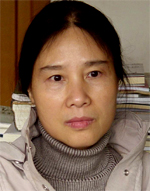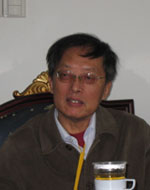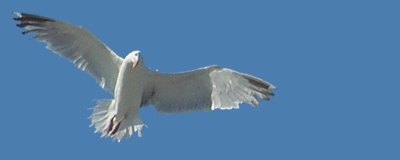
Yi Lu
伊路
  伊路,当代诗人,国家一级舞台美术设计师。中国作家协会、中国戏剧家协会、中国舞台美术学会会员。著有诗集《青春边缘》《行程》《看见》等。作品入选《中华人民共和国五十年文学名作文库(新诗卷)》、《中国诗歌精选》、《中国年度最佳诗歌》、《当代世界华人诗文精选》《当代爱情诗精选》等多种选本。多次获得福建省优秀文学作品奖、福建省政府百花文艺奖及全国性诗文大赛奖等奖项。现居福州。 伊路,当代诗人,国家一级舞台美术设计师。中国作家协会、中国戏剧家协会、中国舞台美术学会会员。著有诗集《青春边缘》《行程》《看见》等。作品入选《中华人民共和国五十年文学名作文库(新诗卷)》、《中国诗歌精选》、《中国年度最佳诗歌》、《当代世界华人诗文精选》《当代爱情诗精选》等多种选本。多次获得福建省优秀文学作品奖、福建省政府百花文艺奖及全国性诗文大赛奖等奖项。现居福州。
Born in Fu Ding, Fujian Province in 1956. Educated at Fujian Art School, B.A. in stagecraft, 1983. A Stagecraft Designer, poet, member of China Writers Association, China Playwrights Association and China Stagecraft Designers Association. Her works have been included in Selected Poems of China in the Yearbook of 2005 (2006), Selected Poems of China in 2004 (2005), and other collections. She is a recipient of The First Prize of Literary Works of Huang Chang-cheng Award of the Third Public Appraisal (1992), The Best Literary Works of the Seventh Public Appraisal, Fujian Province(1993). Her publications include On the Verge of Youth: Selected Poems (1991), The Voyage: Selected Poems (1997) and See: Selected Poems (2004). She lives in Fuzhou, China.
|

|

译者
Translator
张子清
Ziqing Zhang
  Ziqing Zhang is professor of Institute of Foreign Literature, Nanjing University, Nanjing, guest research Fellow of Chinese American Literature Research Center, Beijing University of Foreign Studies, Beijing. He was a visiting scholar as a post-doctoral fellow at Harvard University from 1982 to 1983 and Fulbright Scholar at Harvard University and The University of California at Berkeley from 1993 to 1994. His works include A History of 20th Century American Poetry (1995, 1997), Selected Poems of T.S.Eliot (1985), Selected American Poems (1993) and Birthday Letters by Ted Hughes (1998). He has co-authored Two Sides of the Globe: Contemporary Chinese and American Literatures and Their Comparison (1993) and On American New Pastoral Poems (2006). He has received many awards including The First Prize of Humanities Research Science Foundation of Nanjing University in 1998. Ziqing Zhang is professor of Institute of Foreign Literature, Nanjing University, Nanjing, guest research Fellow of Chinese American Literature Research Center, Beijing University of Foreign Studies, Beijing. He was a visiting scholar as a post-doctoral fellow at Harvard University from 1982 to 1983 and Fulbright Scholar at Harvard University and The University of California at Berkeley from 1993 to 1994. His works include A History of 20th Century American Poetry (1995, 1997), Selected Poems of T.S.Eliot (1985), Selected American Poems (1993) and Birthday Letters by Ted Hughes (1998). He has co-authored Two Sides of the Globe: Contemporary Chinese and American Literatures and Their Comparison (1993) and On American New Pastoral Poems (2006). He has received many awards including The First Prize of Humanities Research Science Foundation of Nanjing University in 1998.
张子清是南京大学外国文学研究所教授,北京外国语大学华裔美国文学研究中心客座研究员。哈佛-燕京访问学者(1982-83),美国富布莱特访问学者(1993-94)。中国作家协会会员、全国美国文学研究会常务理事、中国比较文学学会会员。代表作:《20世纪美国诗歌史》(1995,1997)。主编 “华裔美国小说丛书”(译林出版社)、“西方人看中国丛书”(南京出版社)。
|
残墙
因失去其余三面
像一侧巨刃
它没有想到这是它最后的形象
有几根木桩撞击它的腰身
一贯起着保护作用的墙
成为危险
这使它从概念里脱离出来
显得很孤独
它的躯体终于被撞出洞口
从洞眼看见的不是家具
而是云朵
天空开始摇晃
它环视着四周的废墟
知道独立的代价
现在
它失去所有的责任和意义
只为自己站立 现在
哪怕是十分之一秒
也是它的永恒
它体会着绝望的空阔
可它看见弱小的人慌张逃窜
很想弯下身体扶起一个孩子
这一转念使它倒下的姿态缓慢又庄重
仿佛可以分解出无穷的情意
但它很快平覆
人们于是欢呼着跑过
|
|
A damaged wall is left
Like a blade of huge knife
When its other three sides are collapsed
It has never regarded itself as a final image
Rammed on its waist by wood stakes
The wall has changed its role from protective
To dangerous to people.
It appears rather lonely as it is separated from
Our general conception of wall
Finally its body got jabbed a hole
Through which we see clouds floating
Instead of furniture standing there
When the sky begins to shake
The wall looks all round at the ruins, and
Knows what price it has paid for its independence
Deprived of its all duties and meanings
It tries hard to stand alone, experiencing
A kind of desperate spaciousness
Even for a tenth of a second
Its own eternity
How it wishes to bend down
To help a tumbled kid up
When it sees crowds of people
Fleeing in fright
Slowly and solemnly it falls down to pieces
As if innumerable tender regards it tends to decompose
People rush forward to it in jubilation
While it falls flat on the ground
|







